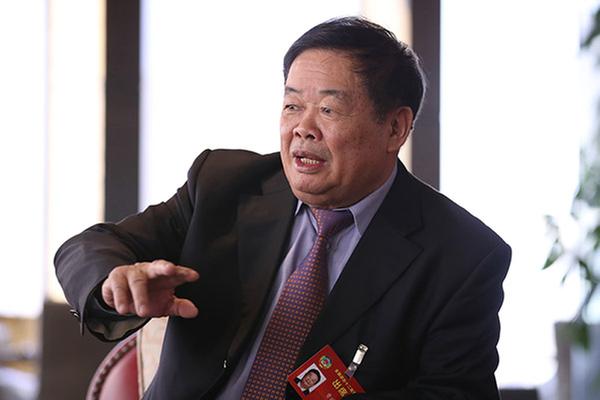Chinese tycoon rebuts biased NYT report about his American factory

 |
| Cao Dewang, chairman of Fuyao Glass Industry Group. [Photo provided to China Daily] |
WASHINGTON - Cao Dewang, founder and head of the world's top auto glass manufacturer Fuyao Glass, was perturbed in recent days by an untruthful New York Times report about his factory in Dayton, Ohio, which went viral on China's social media.
"(Dayton) local government claims the New York Times report is a 'false' one," Cao told Xinhua in a telephone interview. The Chinese tycoon added that the local government believes that Fuyao's investment in Dayton has brought tremendous positive changes to the local community.
The Dayton factory, which officially started operation in October 2016, currently employs some 2,000 US workers. It has invested $600 million in the Dayton plant and plans to further expand the investment in the United States in the next few years, creating 3,000 more jobs there.
In a recent report, the New York Times claimed that "at Fuyao, a major culture clash is playing out on the factory floor, with some workers questioning the company's commitment to operating under American supervision and American norms."
"New York Times didn't visit and interview any current employee at Fuyao's Dayton factory. Instead, it only talked with a few former workers and union activists, who are biased to a certain degree," said Cao.
The former employees interviewed by the New York Times had been fired by Fuyao due to excessive absence, late arrivals or early leaves, according to a communication officer from Fuyao.
Cao confirmed that some of Fuyao's employees attended a meeting held by a union organization, but he rejected the stories widely circulating on Chinese social media asserting that "Fuyao employees were demonstrating against the company."
"Among Fuyao's around 2,000 employees, only dozens attended a meeting held by a union organization outside Fuyao factory," Cao told Xinhua, adding that "Fuyao has no right to intervene employees' activities after work."
Cao also said that Fuyao's factory in Dayton has been strictly observing US laws and regulations.
In response to safety issues pointed out by US safety regulator, Fuyao paid $100,000 in penalty to settle the charges from the Occupational Safety and Health Administration (OSHA).
According to a statement provided to Xinhua by Fuyao's communication officer, at the beginning of last year when the Dayton factory had been operating for a few months, OSHA found some safety concerns, such as insufficient access to locks that shut down machines, during its inspections. "Fuyao acknowledged parts of the issues OSHA pointed out, and has taken measures to improve workforce safety," said the statement.
Cao denied the claims that the factory lacked sufficient safety measures, saying that "the Dayton factory is equipped with the best automation processing lines."
"If there was any safety issue that threatened employees' life security, my billions of dollars of investment in Dayton would go bust," said Cao.
In response to claims of insufficient training, Cao said that new employees at the Dayton factory usually go through a three-month training which is funded by the local government, and that gives them enough time to know the production line and technologies since training of new workers in Fuyao's Chinese plants usually lasts a week.
He also dismissed allegations of increased proportion of Chinese supervisors. "Fuyao has been localizing its business in America since the beginning of its investment here. The administration and management staff are mainly American, while Chinese only work as technical advisors at the factory, and will not be appointed as top managers," said Cao.
Cao told Xinhua that he has been treating employees as family members and pay them 5 percent to 10 percent higher than local industrial average.
Fuyao also established a charity foundation with an annual budget of $1 million in order to help financially-troubled employees, said Cao.




































